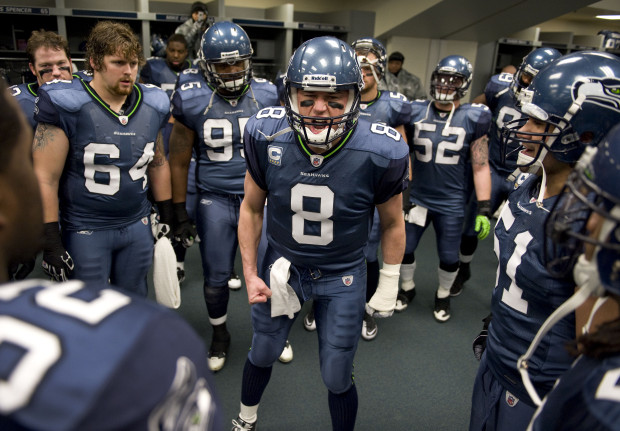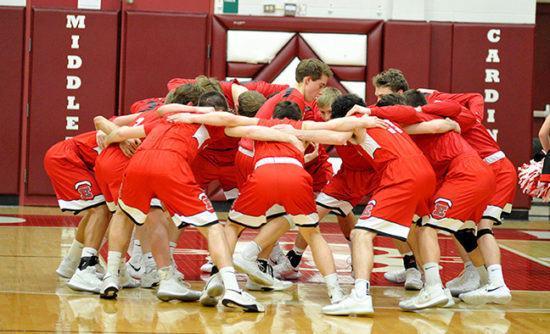A squad leader in sports is a person responsible for leading a group of athletes in a team sport. They are often the most experienced and respected players on the team, and they are expected to lead by example in terms of skill, attitude, hard work, and dedication. Squad leaders provide guidance and instruction to their teammates, motivating them to reach their full potential. They also serve as a liaison between the coach and the players, conveying important messages and helping to ensure that everyone is on the same page. Squad leaders are essential to the success of any team, and they are invaluable assets to any coach.
The Role and Responsibilities of a Squad Leader in Sports
The squad leader is a crucial member of any sports team, playing an important role in the team’s success. As the squad leader, it is your responsibility to ensure the team works together to achieve their goals and objectives. You need to be able to motivate, inspire and lead the team by providing clear direction and setting an example.
The squad leader needs to be an effective communicator, with the ability to give directions to the team, explain tactics, and encourage team members. In addition to this, you need to be able to delegate tasks and delegate authority to team members so that everyone is working together towards the same goals.
Furthermore, it is the squad leader’s responsibility to ensure that the team is well prepared for competitions and games. This includes making sure the team warms up properly, going over team strategies, and providing feedback to the team. You also need to be on the lookout for any potential injuries or potential issues that could impact the team’s performance.
Finally, it is important for squad leaders to uphold the team’s values and culture. This includes setting an example for the team, being an advocate for the team’s values, and ensuring that all team members respect and adhere to the team’s culture.
The role and responsibilities of a squad leader in sports are essential for any team’s success. It is the squad leader’s responsibility to motivate and lead the team, to ensure they are well prepared for competitions, and to uphold the team’s culture and values. Without a skilled and motivated squad leader, a team cannot reach its goals.
Instilling Team Cohesion and Confidence
Sports teams rely heavily on the leadership of their squad leaders to create a cohesive, successful unit. A squad leader is responsible for motivating their teammates, maintaining order, and executing strategies during games. As the team’s leader, it is their duty to instill confidence and a sense of unity among the players.
Squad leaders must first gain the trust of their teammates by demonstrating respect and dedication. When a team trusts its leader, it is more likely to follow their instructions and play with greater unity. A squad leader should also be able to identify and capitalize on their team’s strengths while addressing any weaknesses in order to create an effective game plan.
Communication is essential for squad leaders, both on the field and off. During games, they must be able to communicate instructions and strategies clearly and efficiently. Off the field, they should foster an environment of open dialogue and understanding amongst teammates. This can be done through team-building activities, such as group dinners and team outings.
Squad leaders must also be able to recognize the importance of each team member and their role. Every player has a specific job to do, and it is the squad leader’s responsibility to make sure that each player is aware of their individual tasks and how they fit into the overall strategy. This will create a sense of purpose and unity within the team.
Ultimately, a squad leader is responsible for instilling team cohesion and confidence. They must be able to motivate their teammates, maintain order, and communicate effectively. By doing so, they can create a unified team that is capable of achieving greatness.
Setting Team Goals and Strategies
Squad leaders in sports play a vital role in ensuring team success. They are responsible for setting team goals and strategies, motivating players, and making sure players are on the same page. As such, squad leaders must possess excellent communication and organizational skills. They must be able to keep players focused on the task at hand and possess the ability to break down tasks into smaller, achievable goals. Additionally, squad leaders must have a working knowledge of the sport they are coaching in order to make informed decisions regarding team strategies.
It is essential for squad leaders to create a game plan that outlines team strategies, tactics, and goals. Additionally, they must also be able to adjust their plans on the fly depending on the situation. This involves monitoring the opposing teams’ strategy and recognizing when a new plan is necessary. Lastly, squad leaders must be able to take feedback from players and adjust plans accordingly. By utilizing these skills, squad leaders can ensure that their team has the best chance of success.

Developing Leadership Skills
in Athletes
Being a successful team leader in sports requires more than just skill and athleticism. It also demands strong leadership and communication abilities. By encouraging athletes to develop their leadership skills, they can become more efficient, better team players, and even more successful on the field.
Leadership development begins with motivation. Effective leaders motivate their teammates to strive for the best, both in and out of the game. They also learn to recognize when their teammates need a push and how to best provide it. A great squad leader also knows how to build team unity by creating an environment where everyone is working toward a common goal.
Good communication is another essential component of being a successful leader. Being able to accurately communicate information and provide clear direction is key. Leaders must also develop the ability to actively listen and provide feedback. This helps to build trust within the team and ensures that everyone is on the same page.
Leaders must also be able to think on their feet and make quick decisions. They must be able to recognize opportunities and potential pitfalls and adjust their game plan accordingly. Ultimately, they must be able to make the best decisions for their team, even when it goes against their own personal interests.
Developing leadership skills in athletes helps them become more confident and successful both on and off the field. With the right guidance and motivation, athletes can become effective team leaders and help their teams reach their full potential.
Working with Players to Improve Performance
As a squad leader in sports it is important to understand how to work with players to achieve the desired performance. Working with players can be a challenging task, as it requires you to be able to motivate, discipline, and develop them to reach their full potential. As a squad leader, it is your responsibility to ensure that each player is performing to the best of their ability. To do this, you must be able to communicate effectively, develop strategies to improve performance, and provide support to the team.
Communication is key when working with players. It is important to listen and understand what the players are saying to ensure that their needs are being met. You must also be able to communicate your expectations and provide feedback in a constructive manner. Additionally, it is important to provide a safe and supportive environment for players to express their opinions and concerns.
Strategizing and developing plans can help improve the performance of the team. It is important to have an understanding of the strengths and weaknesses of the team as well as individual players. Using this information, you can develop strategies that will help the team reach its goals. Additionally, it is important to give players the necessary tools and resources to help them reach their potential.
Finally, providing support to the team is an important part of being a squad leader. This includes offering encouragement, being available to answer questions, and providing positive reinforcement when players reach their goals. It is also important to recognize the accomplishments of individual players and the team as a whole.
Overall, squad leaders must be able to work with players to improve their performance. This requires effective communication, strategizing to ensure the team reaches its goals, and providing support to the team. By doing so, squad leaders can ensure that the team is able to reach its full potential and perform at its best.
Understanding Team Dynamics & Communication
Being a successful squad leader in sports requires more than just technical skill and knowledge of the game. You need to be able to understand and manage the team dynamics and communication. It is essential to have a strong leader who can motivate the team to work together to reach a common goal.
Team dynamics and communication play an integral role in a team’s success. A squad leader must be able to understand the personalities and motivations of each individual team member in order to create an environment of trust and respect. This is essential in order for a team to work together harmoniously. Furthermore, squad leaders must be able to effectively communicate expectations and strategies in order to ensure the team is on the same page and working towards the same objectives.
In order to ensure team cohesion, squad leaders must be able to recognize team strengths and weaknesses and adjust accordingly. This requires a keen understanding of the team dynamics and communication styles. It is also essential for a squad leader to be able to motivate and inspire the team. A good leader will be able to recognize each team member’s strengths and weaknesses and use those to create a cohesive unit.
Leadership is an important quality in any sport, and understanding team dynamics and communication are essential for success. A squad leader must be able to understand and manage the team dynamics and communication in order to ensure a successful season. By doing so, a squad leader can create an environment of trust and respect and ensure the team is working together to reach a common goal.
FAQs About the Squad Leader In Sports
Q: What is a squad leader in sports?
A: A squad leader in sports is an individual responsible for leading and motivating a team of athletes during practices, games, and other team activities. They often serve as a role model for the team, setting an example of good sportsmanship and providing a supportive environment for team members to flourish.
Q: What responsibilities does a squad leader have?
A: A squad leader’s responsibilities include leading team warm-ups and drills, demonstrating proper technique, motivating team members, and helping to create team unity. They may also provide feedback and guidance to individual team members, help set team goals, and act as an advocate for the team.
Q: What skills do squad leaders need?
A: Squad leaders need excellent leadership and communication skills, as well as knowledge of the sport they are leading. They must also be able to motivate and encourage team members, while also being able to recognize when an athlete needs extra attention or assistance. Lastly, squad leaders must possess a good understanding of the rules and regulations of the sport.
Conclusion
Squad leaders in sports are an important part of any successful team. They help to motivate and lead their teammates, create a positive team atmosphere, and provide guidance on and off the field. Squad leaders are also responsible for helping to set goals, build team spirit, and foster team unity. With these qualities, squad leaders can help to make a difference in any sports team and help to ensure success.



